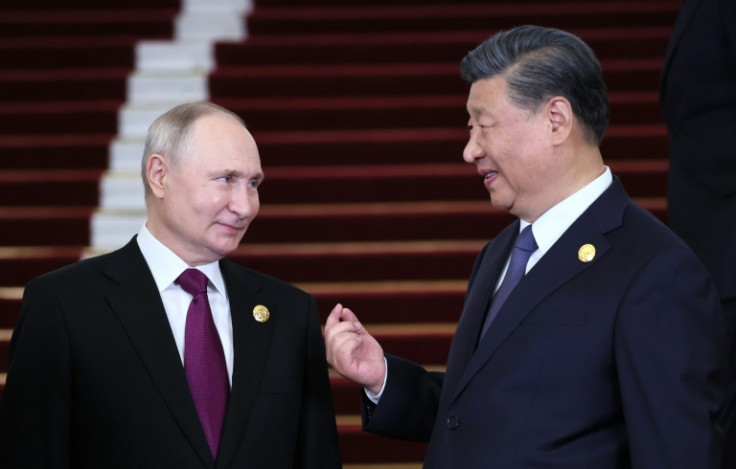
Russian President Vladimir Putin hailed Thursday the "unprecedented" energy links between Moscow and Beijing despite failing to secure a much-sought agreement on a major new gas pipeline.
Russia has been hit by massive Western sanctions over its Ukraine offensive, and with Europe trying to sever its energy links with Moscow, the Kremlin has looked eastwards to replace crucial lost export revenue.
"Relations in the overall partnership and strategic cooperation between the Russian Federation and the Chinese People's Republic have reached an unprecedented high level and continue to develop dynamically," Putin said in a statement addressing a Russian-Chinese energy forum in Beijing.
"One of the key areas of this relationship is energy cooperation, which is becoming increasingly active," he added.
Putin was wrapping up a two-day visit to China, his first outside the former Soviet Union this year and part of the Kremlin's drive to strengthen its economic partnerships across Asia.
But the trip appeared not to have led to a breakthrough with Beijing over the "Power of Siberia 2" gas pipeline -- a massive new gas link to China through Mongolia that Russia wants to build.
The initiative would export gas from Russia's Siberian fields that used to supply Europe, potentially doubling the volumes Russia can send to China via pipeline.
On Tuesday, Putin had assured his Mongolian counterpart that an agreement on Power of Siberia 2, which would pass through the steppes of Mongolia to reach northeast China, was on track.
"Everyone agrees with this project (...) It's a question of implementation. I think we will move forward at a good pace," he said.
Moscow hopes to start building the pipeline in 2024, but there were no public statements from Russian or Chinese officials that a deal had been reached during Putin's time in Beijing.
The head of the Russian gas company Gazprom, Alexei Miller, hailed on Thursday a 46.6 percent increase in exports through the existing "Power of Siberia" pipeline so far this year.
Russia launched that pipeline in 2019, under a landmark 30-year contract worth $400 billion.
The Power of Siberia is ramping up to a maximum capacity of 38 billion cubic metres (bcm) per year -- though this is less than the 55 bcm capacity of each of the two Nord Stream pipelines between Russia and Germany.
Europe cut its pipeline imports from Russia after Moscow launched its offensive in Ukraine, while blasts to the Nord Stream 1 and 2 pipelines last September could have put them permanently out of operation.
Russia has also significantly boosted its oil exports to China, often selling at a discount amid a price cap on Russia's seaborne crude exports being imposed by the G7, EU and Australia.
The head of Russian oil company Rosneft, Igor Sechin, told the same energy forum where Putin was speaking that "over 75 percent" of Russia's exports to neighbouring China are energy linked.
He said that Russia was China's main oil supplier in 2023, overtaking Saudi Arabia.
© 2025 Latin Times. All rights reserved. Do not reproduce without permission.




